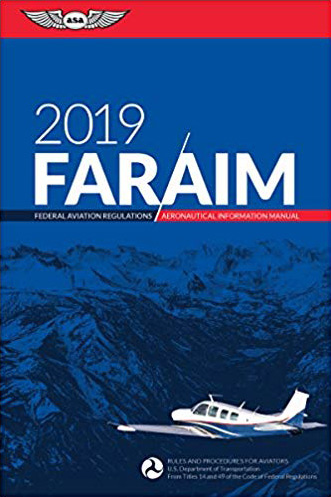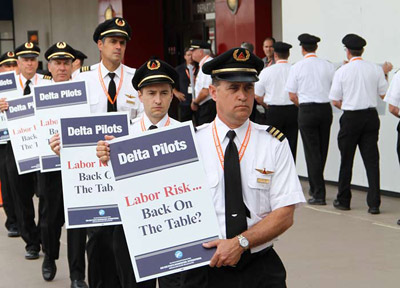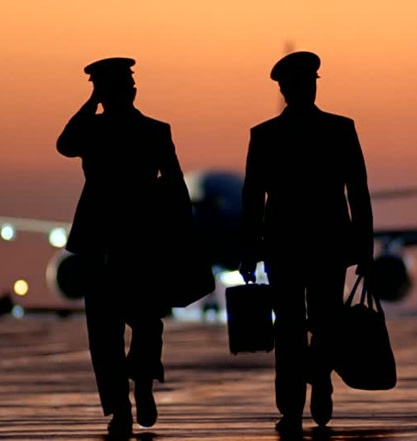10 Things to Know About Working as a Pilot

The pilot career is often viewed as glamorous. Flying airplanes and seeing the world is a dream of many. But there are also some challenges to the career as well. Even with the challenges, most pilots consider the tradeoffs worth pursuing their dreams.
1) Training and Testing is Going to Be Part of Your Life
Your pilot career is going to kickoff with training by getting the necessary licenses and ratings to be able to fly for a living. Through this initial training you will be tested repeatedly – by written exams, oral exams, and flight tests.
Training and testing will be an ongoing part of your career. Anytime you switch employers or airplane types you will attend initial training. There will be recurring training at least once a year. Recurrent pilot raining will involves regular testing as well.
Professional pilots learn to get comfortable with a life of training and testing. And they learn how to approach and thrive in the very fast pace initial training is often conducted at.
2) You Will Live By Regulations

Your life is going to be governed by Federal Aviation Regulations (FAR). These will not only determine how you conduct your flights and make decisions while at work, but can often influence your off time as well. And the regulations will also determine the pace at which you can advance through your career by mandating flight experience before obtaining certain licenses or being able to work in some positions.
3) Schedules Are Going to Be a Central Part of Your Life
Time is the main advantage flying conveys. Everything in aviation is controlled by time. Pilots live their professional lives off of clocks. You must get used to your watch controlling your life and the stress this can add.
You will not only need to live by time but will also need to learn how to not let it pressure you into working faster and making mistakes.
Pilots can expect long work days with no real breaks available.
4) The Pilot Job Market is Very Cyclical
There is a pronounced shortage of pilots right now – keeping them in high demand. But the pilot job market has historically been marked by both highs and lows in employment opportunities. The current shortage will likely last a while but the positive market won’t last indefinitely. During the next downturn many pilots can expect furloughs and it will become very difficult to find a pilot job. Pilots can expect the ups and downs to be a recurring part of their career.
5) Medical Checkups Can Be Stressful
Your livelihood will depend on your ability to obtain medical certification. These exams occur on a regular basis. During each exam there is a risk that something will be found that is not only bad news for your health but can also impact your ability to make money.

Pilots make it through most of these exams just fine, and even if there is an issue uncovered the FAA has processes in place to keep you flying for many medical concerns. However, this can still be a stressful time for pilots.
6) You Will Deal With Fatigued
Odd hours, long periods on the road, long work days, changing timezones, and uncertainty in a work day are all part of working as a pilot. And these all contribute towards pilot fatigue.
During a pilot career you will need to learn to recognize the signs of fatigue in yourself – which can be especially difficult to notice when you are already fatigued. But you will also need to be aware of circumstances, as they are unfolding, that can lead you in to being fatigued.
Pilot employers will often push fatigue regulations and will not be understanding of the conditions that lead you in to being too tired to continue flying. It falls on pilots to always keep tabs on their condition and ability to fly safely.
7) You’re Going to Scare Yourself a Few Times
There is a common phrase in aviation – flying is long periods of boredom punctuated by short bursts of terror. This doesn’t mean you’re going to be soiling yourself on a recurring basis. But there will be points in your career, especially when you’re working in entry level jobs, where you will scare yourself.
Maybe you get yourself into weather that exceeds the capabilities of your airplane. Or maybe a student does something baffling and dangerous while you’re teaching them to fly. These moments are what teach you and ultimately make you a safer pilot before taking on more responsibilities when flying larger airplanes.
Many aviation operations have grown more structured through the years. Larger and more structured operations tend to have less opportunity for pilots to scare themselves.
You are going to start your career with a full bag of luck and an empty bag of experience. The trick is to fill the experience bag before the luck bag runs out.
8) Life On the Road Can Be Difficult

Time spent away from family and friends is difficult. Not being able to reliably commit to schedules at home is difficult. Living out of a suitcase and sleeping in strange beds can grow old – even to the most avid travelers. Attempting to live a normal life out of a suitcase is difficult for pilots.
The Terminal Environment is Stressful – The things passengers have issues with – crowded airports, TSA, long lines, lengthy delays pilots are exposed to on a daily basis. Airports terminals are not relaxing environments.
9) The Pilot Career Takes a Toll on Your Body
Life on the road, odd and ever-changing work hours, difficulty in obtaining healthy food while traveling, increased exposure to illness, long periods of sitting all add up to making it more difficult for pilots to maintain a healthy lifestyle.
In a study of pilot health, increased rates of melanoma, cataracts, and motor neuron disease were found to be significantly higher among pilots.
10) Labor Relations Are Contentious At Times

Aviation is a heavily unionized industry. There is a long standing pattern of animosity between pilot groups and their employers. Most of the time this is at a simmer but there will be points where a pilot group is not getting along with their employer – whether it is new policies and procedures, labor negotiations, or other higher level decisions pilots disagree with. During these times relations are strained and the working environment can be unpleasant.
Greg started his professional pilot journey in 2002 after graduating from Embry Riddle. Since that time he has accumulated over 8,000 hours working as a pilot. Greg’s professional experience includes flight instructing, animal tracking, backcountry flying, forest firefighting, passenger charter, part 135 cargo, flying for a regional airline, a national low cost airline, a legacy airline, and also working as a manager in charge of Part 135 and Part 121 training programs.



